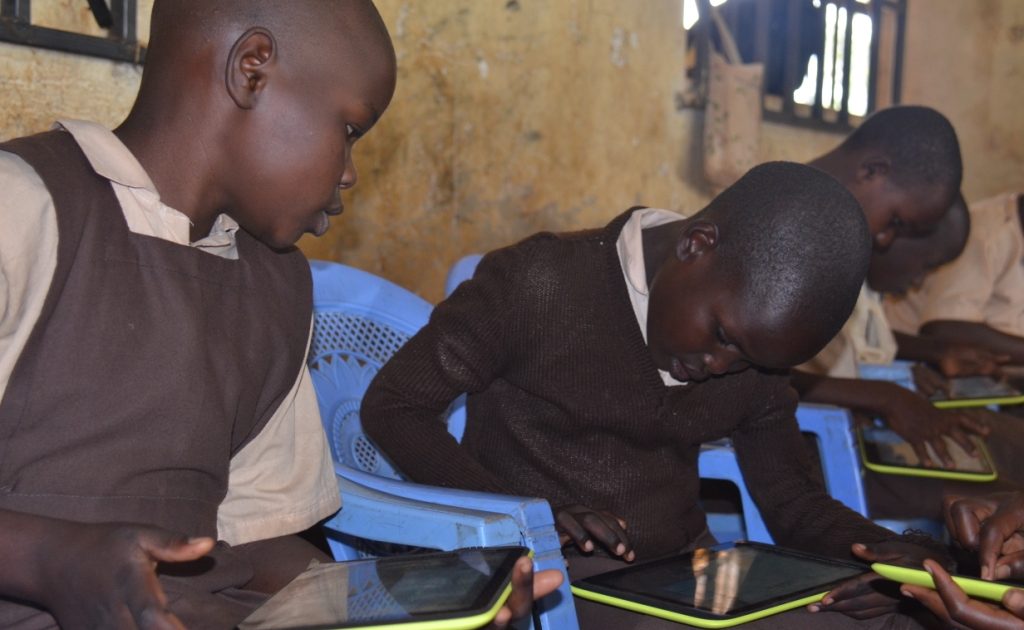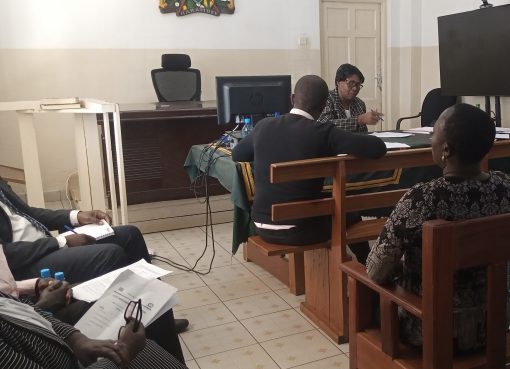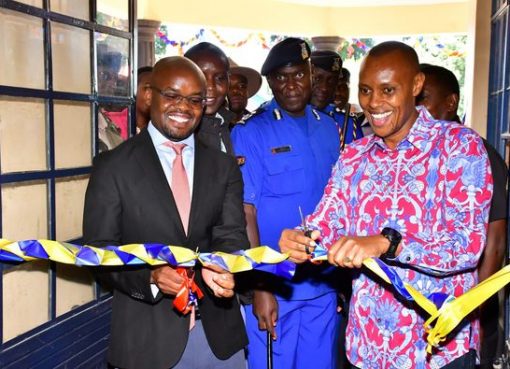


The Kenya’s Digital Learning Programme (DLP) in lower primary school has become a good trap to many pupils who are now reluctant to miss classes.
More grade three class pupils are regularly attending digital learning lessons compared to other subjects because of the high passion they have developed in online learning, KNA can confidently confirm.
A visit by the Migori County Development Implementation and Coordination Committee (CDICC) members to various primary schools, on Tuesday, revealed the level of enthusiasm the young learners do as they go about their lessons using the tablets.
At Anindo Primary School within Awendo town Municipality, Committee members who were on a mission to assess the usability of the gadgets were impressed with the high spirit the youngsters flashed as they tapped the machines’ key boards with their little fingers as directed by their teachers.
“This is great. We can see the impact of the programme in our children,” said the County Commissioner (CC), Joseph Rotich, who doubles up as the Chairman of the CDICC Committee as he led members in assessing the programme at the school.
A grade three class pupil, Master Victor Ouma, confided to the team that he never misses any of the three-days online classes conducted every week at the school.
And a few kilometers from Ouma’s school is Sony Public Primary School where there are six streams packed with grade three class learners.
With 117 tablets at their disposals, the over 400 pupils learns in turns using the gadgets. The institution was supplied with 129 tablets but has since lost 12 through theft by unknown persons.
Local education officials led by Ms Emilly Badia, expressed their satisfaction with the programme launched in 2016, giving it a high score card.
So far, at total of 32,590 learners digital device (tablets), 1,198 teachers digital device, 559 projectors 42 Braille, 148 SNE VI and 15 SNE HI have been supplied to all of the 625 primary schools existing in the region, according to Alex Odhiambo, the County ICT officer.
Although all looks rosy on the side of the learners in regards to the online learning, there are numerous challenges that the schools faces as they implement this otherwise noble programme.
According to the Head Teachers of Sony and Anindo Primary Schools, Titus Muo and Moses Odero respectively, the programme is still dogged by shortage of teachers.
“The tablets are a motivator to learners. Those who have mastered their use do not want to miss classes. However, we have a big shortage of teachers to implement this programme well,” says Muo.
Another problem that comes in-toe with the programme in all the schools with the gadgets is power problem. Almost all the institutions experience intense power instability either as a result of transformer breakages or vandalism of electricity lines by vandals as well as power disconnections due to none payment of bills.
To date, there are over 20 schools within Migori County that have been disconnected from the national grid because of failure to pay their bills.
Area Kenya Power Business Manager, Moses Rotich says to date some of the 625 schools in the region owe them an outstanding accrued debt of over 2.2 million, exposing the Digital Leaning Programme in such institution to the risks of stalling.
“Without power these gadgets cannot work. So when power supply is disconnected to a particular school it is obvious on-line learning will be disrupted, hence the schools must pay their power bills promptly to remain safe,” said Korir.
The President’s Delivery Director- In-Charge of the Country, Melchizedeck Onguso, said the National Government is keen to take development programmes in every village and asked wananchi to play the role of watch dogs in order to deal with rogue contractors and government officials out to mess with public funds allocated to projects.
“We want these kids to get the value of the money put in buying these laptops and so the gadgets must be properly used and protected from thefts,” he said during the day-long assessment of the DLP implementation in Awendo sub-county..
By George Agimba





